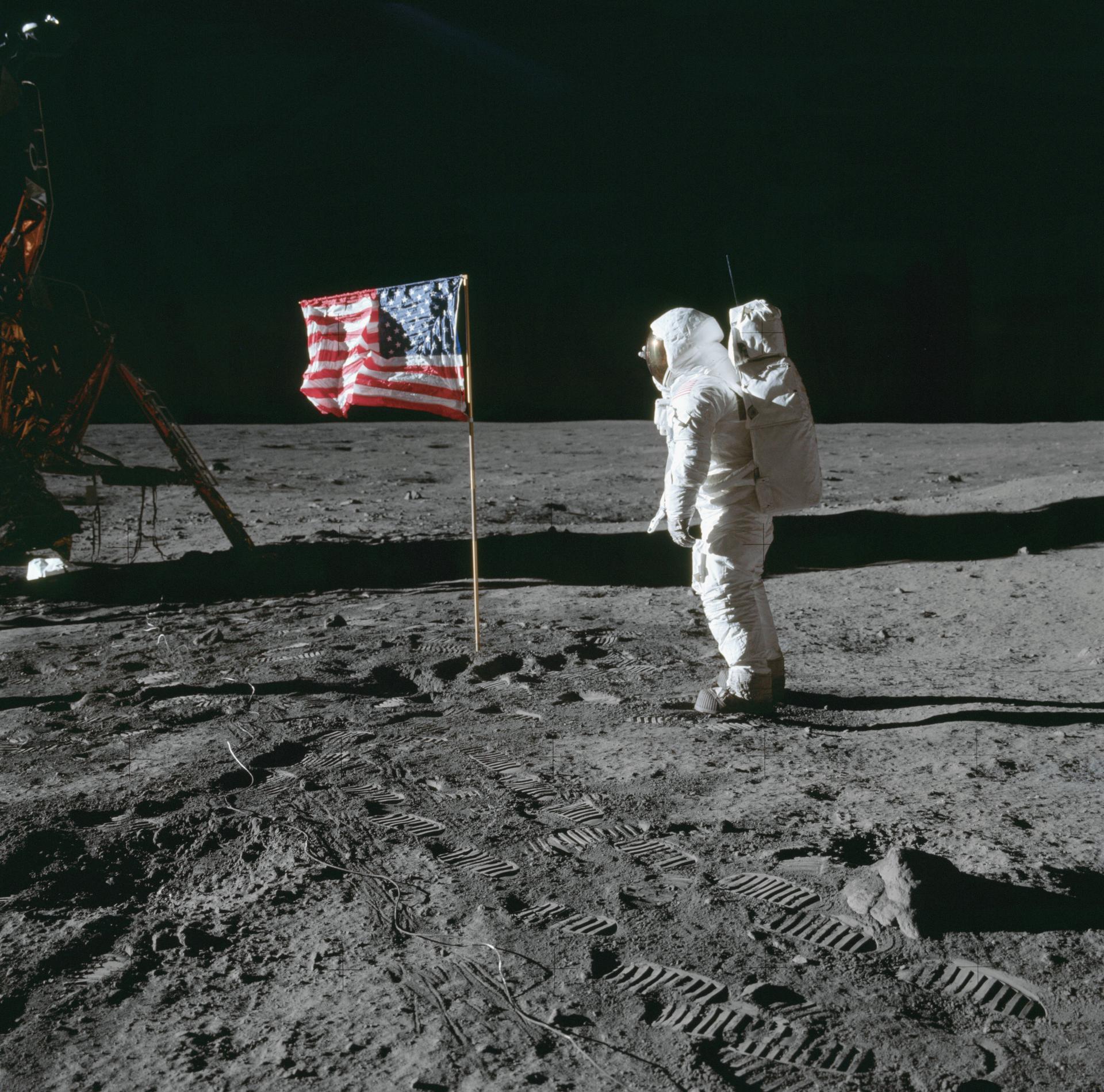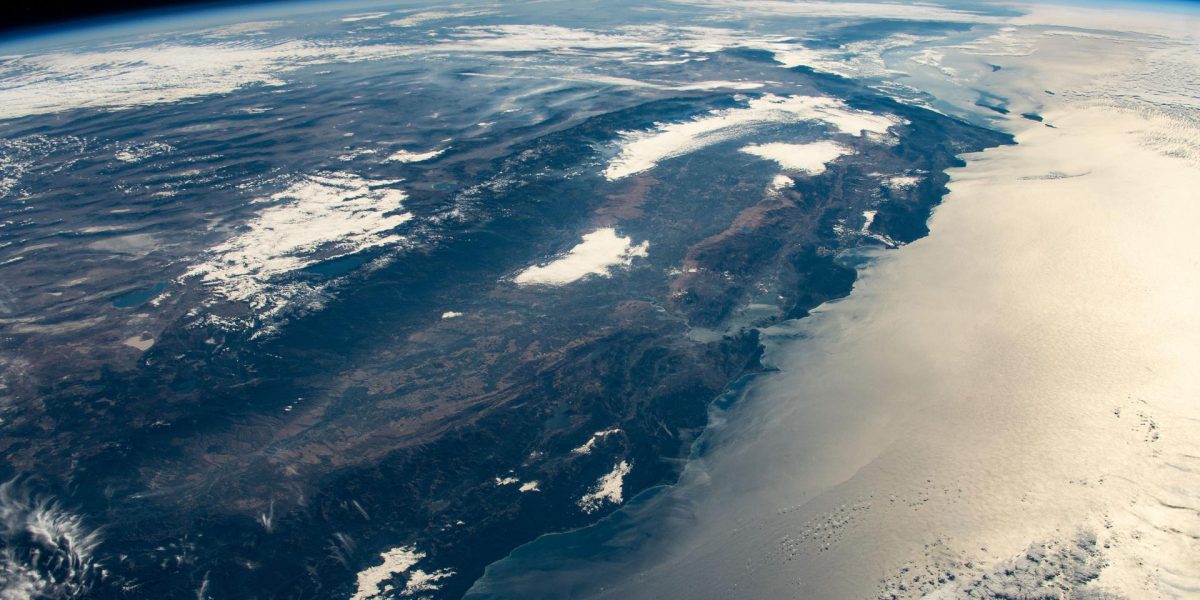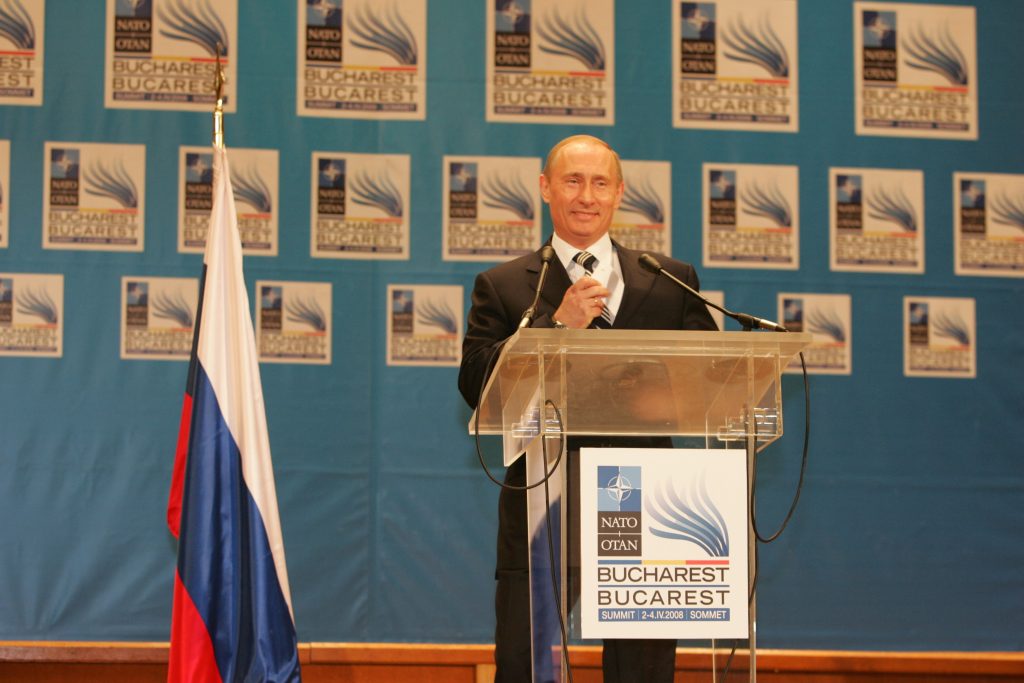Cover Image via NASA
The idea of a “global commons” is a zone that exists outside the jurisdiction of any nation but upon which all nations depend for finite, non-excludable resources.1 The governance framework of treaties and agreements for these commons, such as the Antarctic Treaty of 1959 and the Convention on the Law of the Sea, including the High Seas, in 1982, was established in the wake of World War II to ensure that these zones should only be used for peaceful non-military purposes and all may enter, use, and navigate through them.2 By the time of the Space Race in the 1960s, the Antarctic Treaty served as a major inspiration for the development of space law, establishing much of the same rules for the use of outer space as a commons in the Outer Space Treaty (OST) of 1967, the Registration Convention of 1976, and the Moon Treaty of 1979. Thus, space law sought to establish a “province of all mankind” premised on similar principles: that no state can claim sovereignty over the moon, that no nuclear weapons or weapons of mass destruction or military activities may take place on the moon, and that any activities must prevent the “harmful contamination” of space or Earth.3 Because of our positive “common heritage,” and the potential for negative externalities to affect all people, it is important to make sure governance of commons is responsible and sustainable.4
When the Space Race began, it was led by governmental agencies, such as NASA; however, recent shifts to the privatization of the aerospace sector have challenged this status quo, leading to concerns over the legality of increasing commercialization and militarization of space. Scientific technology has also changed drastically: launch vehicles and satellites are more powerful and numerous, probes and rovers have reached interstellar space and Mars, and information can be transmitted at much higher speeds and size capacities. For space to remain a peaceful global commons in the face of these more advanced capabilities and increased number of actors and motives, the new challenges must be addressed by intergovernmental organizations and incorporated into a more comprehensive body of binding space law.

Commercialization
The stipulation that no state can own any part of space in Article II of the OST was, up until recently, interpreted as meaning that no state could “own” space materials. While space resources have been collected for many years for scientific purposes, such as in the recent OSIRIS-Rex mission, space resources such as rare earth metals present in asteroids have created interest in commercial mining for a “lunar marketplace.”5 With these possibilities in sight, legislators from many countries have begun to think of space as a region ripe for exploitation by all who can, rather than a region that no state or actor should exploit. Only eighteen states have ratified the Moon Treaty, which sought to codify procedures for orderly mining, and none of these states are major spacefaring nations with independently owned launch vehicles.6 The states who did not ratify it, including the “Big Three” major spacefaring nations of the United States, Russia, and China, therefore implicitly claim that any non-military, including commercial, activity on the moon is legal as they never agreed otherwise.
The Trump Administration’s statement that “the United States does not view [space] as a global commons” further undermines the concept of shared responsibility and the need to cooperate in our shared orbits.7 NASA’s support for selling space resources in the Artemis Accords aligns with policies like Trump’s 2020 executive order “Encouraging International Support for the Recovery and Use of Space Resources” and the Commercial Space Launch Competitiveness Act. These policies declare that the U.S. may mine space resources as they deny that “the extraction of space resources […] inherently constitute national appropriation under Article II of the Outer Space Treaty.”8 Saudi Arabia even reversed its ratification of the Moon Treaty in 2023 to join the Artemis Accords as they sought to get on board with space mining. By challenging the interpretation of the OST national appropriation clause in favor of new non-binding expectations, spacefaring parties are taking advantage of ambiguity to benefit while they have an access advantage over most other nations. These policies may prove to be unsustainable as there are no bounds to the exploration, which could lead to a “tragedy of the commons,” in which a communal resource loses its value because it was overexploited in the absence of proper regulation. However, the fact that most states on Earth cannot easily go to space makes it difficult for smaller or less affluent states to challenge those who do not follow the rules.
Militarization
The core principle of using space for peaceful purposes in Article IV of the OST is also being tested as space increasingly becomes part of states’ military strategies. Though the OST prohibits the establishment of military bases, installations, and fortifications, “space forces” have begun to increase, creating a new security dilemma.9 The United States’ creation of a space force, backed by President Biden, has triggered Russia, France, and other states to build their space forces to increase their security in response to the perceived threat of the American one. These military forces constitute military activity in space, directly violating the Outer Space Treaty, and further demonstrating unconcern for international space law by major world players.
Additionally, the increasing capabilities of low-orbit satellites to provide information and internet connections can be appropriated for military uses. Although the use of satellites is not explicitly militant, they can be used to track where enemy troops are located, plan missions, and intercept communications. Recently, SpaceX’s Starlink satellites have played a prominent role in the War in Ukraine, providing internet and access to communication networks to the Ukrainian military after their systems were destroyed in the fighting.10 The Starlink satellites were intended for commercial rather than military purposes, aiming to provide high-speed internet connections worldwide. Yet, the Ukrainian military has used Starlink’s satellites to coordinate drone strikes, prompting Musk to shut off access to the Starlink networks. Musk stated: “If I had agreed to their request, then SpaceX would be explicitly complicit in a major act of war and conflict escalation,” which he objected to participating in.11 As space becomes an increasingly private sphere, as opposed to the government-led efforts of the 1960s, the role of individual actors and their obligations towards governments, international peace, and social responsibility have not been clearly defined.
Conclusions
The governance of outer space–-the existence of which was never necessary before space travel became possible in the 1960s-–presents a complex and evolving challenge for the international community. The existing political and legal frameworks, rooted in the concept of space as a global commons, are under strain as states and private actors increasingly assert their rights to exploit space resources and engage in militarization. This creates tensions regarding what obligations different groups have in maintaining international peace and social responsibility, as well as what rights they are entitled to regarding space resources or even territory. Further ethical considerations include the inaccessibility of the sector to all but the ultra-wealthy, which violates Article I of the OST’s call for space to benefit all states, “irrespective of their degree of economic or scientific development,” not just the states with spacefaring capabilities enabled by material resources.
International cooperation and clear regulations are therefore essential to balance state, private sector, and global interests in space. Crucial components for new space laws must include provisions on sustainability to avoid pollution or corruption of space resources, fair divisions of space so that all nations can benefit, clearly defined rules on how private companies can participate in space, regulations for space commerce, and restrictions on the capabilities of space forces. Thus, new legislation reinforcing the OST while accommodating the changing political, economic, and military landscape of space will ensure the equitable and sustainable exploration of the “final frontier” in years to come.
Notes
- Benjamin Silverstein and Ankit Panda, “Space Is a Great Commons. It’s Time to Treat It as Such,” The Carnegie Endowment for International Peace, March 9, 2021, https://carnegieendowment.org/2021/03/09/space-is-great-
commons.-it-s-time-to-treat-it-as-such-pub-84018. ↩︎ - “Convention on the Law of the Sea,” opened for signature December 10, 1982, United Nations Treaty Series 1833, No. 31363: art. 88-90, https://www.un.org/depts/los/convention_agreements/texts/unclos/unclos_e.pdf; “The
Antarctic Treaty,” opened for signature December 1, 1959, United Nations Treaty Series 402, No. 5778: Art. 1-3,
https://documents.ats.aq/keydocs/vol_1/vol1_2_AT_Antarctic_Treaty_e.pdf. ↩︎ - “Treaty on Principles Governing the Activities of States in the Exploration and Use of Outer Space, including the Moon and Other Celestial Bodies,” opened for signature December 18, 1979, United Nations Treaty Series 610, No. 8843: Art. 1, https://www.unoosa.org/pdf/gares/ARES_21_2222E.pdf. ↩︎
- “Agreement Governing the Activities of States on the Moon and Other Celestial Bodies,” opened for signature July 11, 1984, United Nations Treaty Series 1363, no. 23002: Art. 11, https://www.unoosa.org/oosa/en/ourwork/spacelaw/treaties/moon-agreement.html. ↩︎
- Loren Grush, “NASA wants to buy Moon rocks from private companies,” The Verge, September 10, 2020, https://www.theverge.com/2020/9/10/21429850/nasa-moon-rocks-sampling-commercial-space-transaction-lunar-marketplace. ↩︎
- United Nations Office for Outer Space Affairs, “Status of International Agreements relating to activities in outer space,” January 1, 2023, https://www.unoosa.org/res/oosadoc/data/documents/2023/aac_105c_22023crp/aac_105c_22023crp_3_0_html/AC105_C2_2023_CRP03E.pdf. ↩︎
- U.S. President, Executive Order, “Encouraging International Support for the Recovery and Use of Space Resources, 2020, Executive Order 13914 of April 6, 2020,” Federal Register 85, No. 70 (April 10, 2020): 20381-20382, https://www.federalregister.gov/d/2020-07800. ↩︎
- “The Artemis Accords Principles For Cooperation In The Civil Exploration And Use Of The Moon, Mars, Comets, And Asteroids For Peaceful Purposes,” October 13, 2020: Section 10, https://www.nasa.gov/wp-content/uploads/2022/11/Artemis-Accords-signed-13Oct2020.pdf. ↩︎
- “Treaty on Principles Governing the Activities of States in the Exploration and Use of Outer Space, including the Moon and Other Celestial Bodies,” Art. IV. ↩︎
- Adam Satariano, “Elon Musk doesn’t want his satellites to run Ukraine’s drones,” The New York Times, February 9, 2023, https://www.nytimes.com/2023/02/09/world/europe/elon-musk-spacex-starlink-satellite-ukraine.html. ↩︎
- Elon Musk, Twitter Post, September 7, 2023, 6:48 pm,
https://twitter.com/elonmusk/status/1699917639043404146?s=46&t=bZcrLpl8DTxSpYLBntBfhQ. ↩︎


